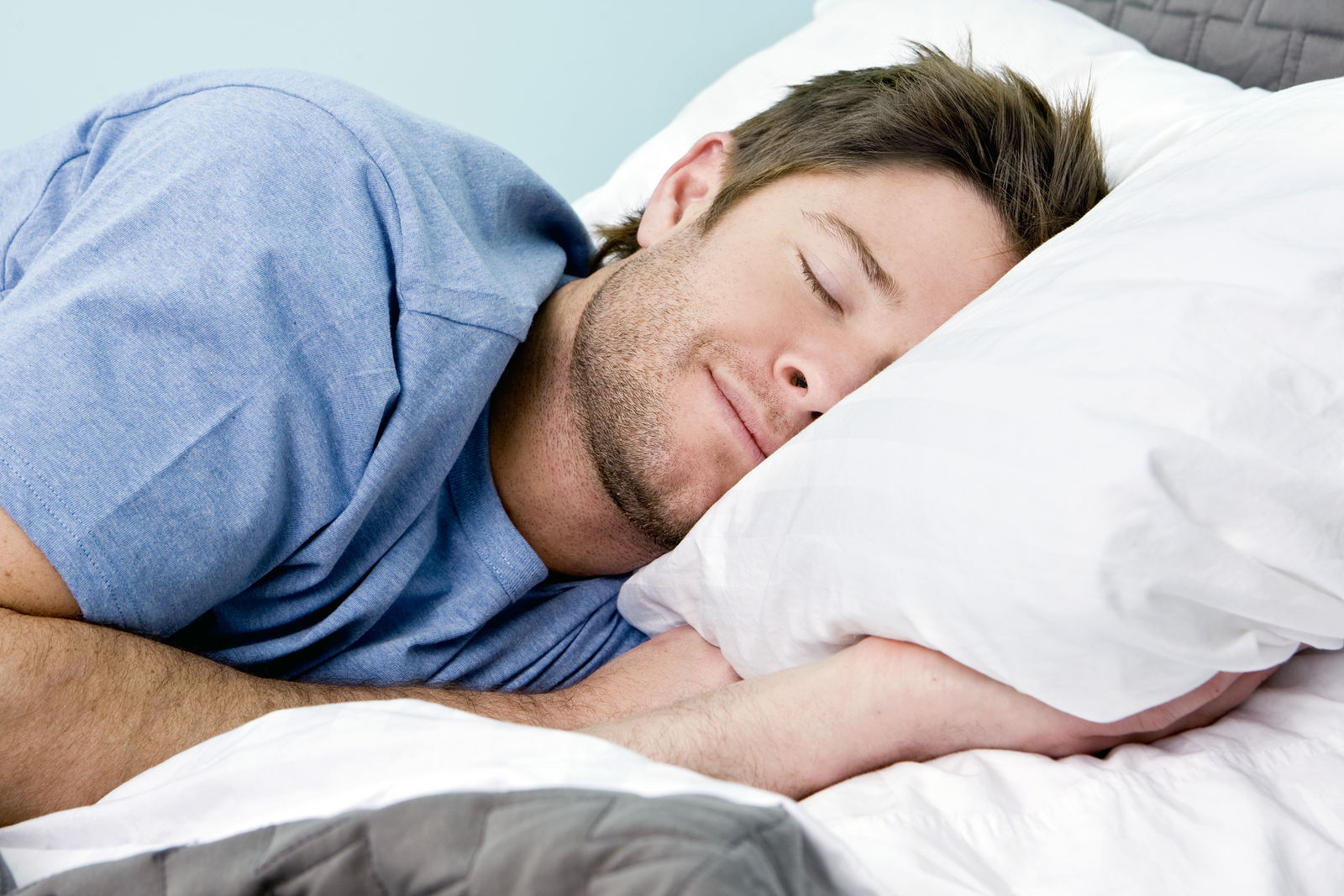Well, this is upsetting: Forty percent of Americans get just six hours of sleep or fewer per night, according to a recent Gallup poll. And groggy mornings and a cranky attitude aren't the only side effects of insufficient shut-eye, either—missing out on sleep can also lead to weight gain. In fact, an analysis by researchers at Columbia University found that people who sleep less than seven hours per night are heavier, gain more weight over time, and have a harder time losing weight!
If you're trying to slim down or shape up, hitting the sack is just as important as sweating at the gym. These six reasons are your best excuses to hit the snooze button and get more sleep.
It Stops Late-Night Snacking
The longer you’re awake, the more likely you are to consume calories you don’t need, which can cause you to gain up to two pounds a week, according to researchers at the University of Pennsylvania. Over the course of seven days, they found that sleep-restricted subjects (sleeping from 4 a.m. to 8 a.m.) gained more weight than their well-rested counterparts (sleeping from 11 p.m. to 8 a.m.), mostly because they ate 550 calories from 11 p.m. to 4 p.m., a time that the other group spent in bed asleep.
It Helps You Burn More Calories
Not only do you have more energy to take on the day after a good night’s sleep, but your body also torches calories, even when you’re not working out. A study from the American Journal of Clinical Nutrition found that normal sleepers' resting energy expenditure—the amount of calories burned when you’re not moving—was five percent higher than their tired counterparts. They also burned 20 percent more calories after a meal versus sleep-deprived people.It Boosts Fat Loss
Even if you eat the exact same diet as your friend, if you’re not getting the sleep your body needs, you won’t drop as much fat as them. A recent study from the University of Chicago compared the weight-loss results from sleeping eight and a half hours per night versus only five and a half hours per night. In both conditions, people ate the same number of calories (about 1,450 calories per day). While both groups lost about six and a half pounds, more than half of that weight was fat for well-rested people, compared to only a quarter for tired participants.It Helps You Shop for Healthier Food
Never go grocery shopping when you’re hungry—or exhausted. In a study published in the journal Obesity, sleep-deprived men bought nearly 1,300 calories in food more than well-rested men. And this was independent of hunger because all the participants (sleep-deprived or not) had been fed a standardized breakfast before the test.It Encourages Portion Control
In a Swedish study, well-rested and sleep-deprived participants were asked to complete a computerized "ideal portion size" task where they could manipulate their serving size on a screen. Their findings: Sleep-starved people added 35 additional calories in snacks to their digital “plate” compared to well-rested participants.
It Keeps Your Brain Focused
Your brain functions differently without sleep. Researchers at Harvard Medical School performed brain scans on people who reported high daytime sleepiness and measured their brain activity in response to high-calorie foods. The scans revealed reduced activation in the ventromedial prefrontal cortex—an area of the brain involved with inhibition and behavior control. Translation: Lowered inhibitions indicate a tendency to overeat when you're tired.
What's more, another study from Columbia University also found brain activity differences in sleepy people's response to food. Their study revealed increased activation in the insular cortex, which regulates pleasure-seeking behaviors. Importantly, unhealthy food activates this region more than healthy food, which means that skipping out on sleep could make it harder to skip out on a trip to the vending machine.
Source
http://www.womenshealthmag.com/weight-loss/sleep-weight-loss





No comments:
Post a Comment